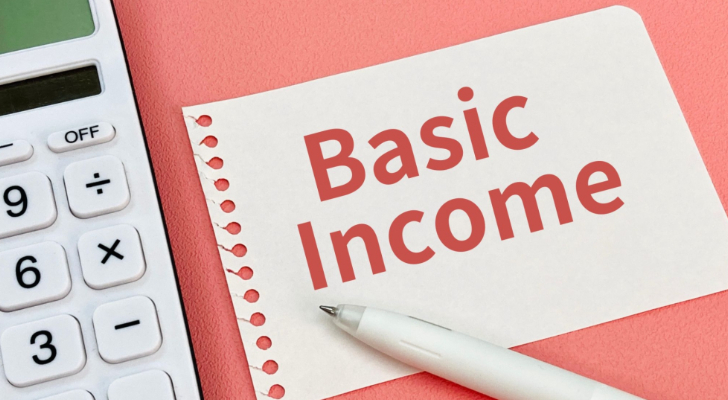
Basic Income, often referred to as Universal Basic Income (UBI), is a socio-economic policy where all citizens or residents of a country receive a regular, unconditional sum of money from the government, regardless of other income. This concept has gained significant attention in recent years as a potential solution to various economic and social challenges, including poverty, inequality, and job displacement due to automation.
This article explores the origins, key features, potential benefits, criticisms, and real-world implementations of Basic Income.
Origins and Key Features
The idea of Basic Income is not new; it dates back to the early 16th century when Sir Thomas More mentioned a form of it in his book “Utopia.” Over the centuries, various philosophers, economists, and political figures have proposed similar concepts. However, the modern notion of Basic Income gained traction in the 20th century, with economists like Milton Friedman and Friedrich Hayek discussing related ideas.
Key features of Basic Income include:
- Universality: Every individual receives the payment, regardless of their income or employment status.
- Unconditionality: There are no prerequisites or conditions to receive the payment.
- Regularity: Payments are made at consistent intervals (e.g., monthly).
- Sufficiency: The amount should be sufficient to cover basic living expenses, though this is often a point of debate.
Potential Benefits
- Poverty Reduction: By providing a guaranteed income, Basic Income can help lift people out of poverty and reduce income inequality. It ensures a safety net for all citizens, potentially eliminating extreme poverty.
- Economic Security: With a guaranteed income, individuals have greater financial stability, which can lead to improved mental health, reduced stress, and better overall well-being. This security can also encourage people to pursue education, training, or entrepreneurial activities without the immediate pressure of financial survival.
- Simplification of Welfare Systems: Basic Income can replace or simplify existing welfare programs, reducing bureaucratic overhead and administrative costs. This streamlined approach can make social safety nets more efficient and accessible.
- Adaptation to Automation: As automation and artificial intelligence continue to disrupt traditional job markets, Basic Income can provide a buffer for those displaced by technological advancements. It allows individuals to transition into new roles or retrain for emerging sectors without facing financial ruin.
- Empowerment and Freedom: With financial security, individuals have the freedom to make choices that align with their values and aspirations. They can leave abusive relationships, take career risks, or engage in community and volunteer work, contributing to a more dynamic and engaged society.
Criticisms and Challenges
- Cost: One of the primary criticisms of Basic Income is its potential cost. Providing a guaranteed income to all citizens requires significant funding, which may necessitate higher taxes or reallocation of government resources. Critics argue that this could strain public finances and lead to inflation.
- Work Incentives: Opponents claim that a guaranteed income might reduce the incentive to work, potentially leading to a decrease in productivity and economic growth. However, proponents argue that Basic Income could encourage people to seek jobs that are more meaningful and better suited to their skills and passions.
- Implementation and Logistics: Establishing a Basic Income system involves complex logistical challenges, including determining the appropriate payment amount, funding sources, and distribution mechanisms. Ensuring equitable access and preventing fraud are also significant concerns.
- Impact on Existing Welfare Programs: Replacing existing welfare programs with Basic Income may lead to unintended consequences for vulnerable populations who rely on specific services. It is crucial to design a system that complements or enhances current social safety nets.
Real-World Implementations
Several countries and regions have experimented with Basic Income pilots to assess its feasibility and impact. Notable examples include:
- Finland: In 2017-2018, Finland conducted a two-year experiment, providing 2,000 unemployed citizens with a monthly Basic Income. The results showed improved well-being and reduced stress among participants, but no significant impact on employment rates.
- Canada: The city of Ontario ran a Basic Income pilot from 2017 to 2019, targeting low-income individuals. The pilot aimed to study the effects on health, education, and employment. Preliminary findings indicated positive outcomes, but the program was prematurely canceled due to political changes.
- United States: Various U.S. cities, including Stockton, California, have implemented Basic Income pilots. Stockton’s experiment provided 125 residents with $500 per month for 18 months. The results showed increased financial stability, improved mental health, and higher employment rates among participants.
Conclusion
Basic Income is a bold and innovative policy proposal that has the potential to address some of the most pressing economic and social challenges of our time. While it presents significant benefits, including poverty reduction, economic security, and adaptability to technological change, it also faces substantial criticisms and implementation challenges. As countries and communities continue to explore and experiment with Basic Income, it is essential to carefully consider the design, funding, and integration with existing welfare systems to ensure it effectively meets the needs of all citizens. The ongoing dialogue and research on Basic Income will shape its future and determine its viability as a solution for a more equitable and resilient society.


